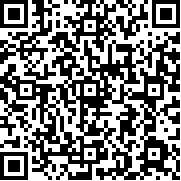
公眾號:mywangxiao
及時發(fā)布考試資訊
分享考試技巧、復(fù)習(xí)經(jīng)驗

新浪微博 @wangxiaocn關(guān)注微博
聯(lián)系方式 400-18-8000
An invisible border divides those arguing for computers in the classroom on the behalf of students’ career prospects and those arguing for computers in the classroom for broader reasons of radical educational reform. Very few writers on the subject have explored this __1__—indeed, contradiction—which goes to the heart of what is wrong with the __2__ to put computers in the classroom.
An education that aims at getting a student a certain kind of job is a/an __3__ education, justified for reasons radically different from why education is __4__ required by law. It is not simply to __5__ everyone’s job prospects that all children are legally __6__ to attend school into their teens.Rather, we have a certain __7__ of the American citizen,a character who is __8__ if he cannot competently assess __9__ his livelihood and happiness are affected by things __10__ of himself.
But this was not always the case; before it was legally required for all children to attend school until a certain __11__, it was widely accepted that some were just not equipped __12__ nature to pursue this kind of education.With optimism characteristic of all industrialized countries, we came to accept that everyone is __13__ to be educated. Computer-education advocates __14__ this optimistic notion for a pessimism that __15__ their otherwise cheery outlook. __16__ on the confusion between educational and vocational reasons for bringing computers into schools, computer-education advocates often __17__ the job prospects of graduates over their educational __18__.
There are some good arguments for a technical education given the right kind of student. Many European schools __19__ the concept of professional training early on in order to make sure children are __20__ equipped for the professions they want to join.
1.[A]distinction [B]topic [C]separation [D]education
2.[A]campaign [B]practice [C]action [D]goal
3.[A]informal [B]basic [C]technical [D]expensive
4.[A]differently [B]universally [C]conversely [D]regularly
5.[A]form [B]consist [C]arise [D]raise
6.[A]ordered [B]inquired [C]required [D]acquired
7.[A]conception [B]information [C]theme [D]imagination
8.[A]complete [B]accomplished [C]incomplete [D]improper
9.[A]why [B]what [C]where [D]how
10.[A]inside [B]outside [C]beside [D]aside
11.[A]year [B]age [C]day [D]extent
12.[A]in [B]at [C]by [D]with
13.[A]fit [B]responsible [C]suitable [D]able
14.[A]consider [B]forget [C]forsake [D]foretell
15.[A]believes [B]becomes [C]bears [D]betrays
16.[A]Encountering [B]Banking [C]Devising [D]Seeking
17.[A]emphasize [B]encourage [C]engage [D]enlarge
18.[A]academy [B]position [C]degree [D]achievement
19.[A]interact [B]introduce [C]announce [D]invent
20.[A]traditionally [B]drastically [C]properly [D]hardly
參考答案:1~5 AACBD 6~10 CACDB
11~15 BCACD 16~20 AADBC
相關(guān)推薦:
2014年英語專業(yè)四級閱讀理解高分特訓(xùn)100篇【命題分析+答題攻略+強化訓(xùn)練】[免費下載]
2014年英語專業(yè)四級完形填空高分特訓(xùn)100篇【命題分析+答題攻略+強化訓(xùn)練】[免費下載]
2014年英語專業(yè)四級高分范文100篇【命題分析+答題攻略+強化訓(xùn)練】[免費下載]
(責(zé)任編輯:zn)